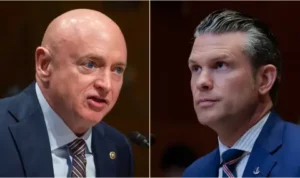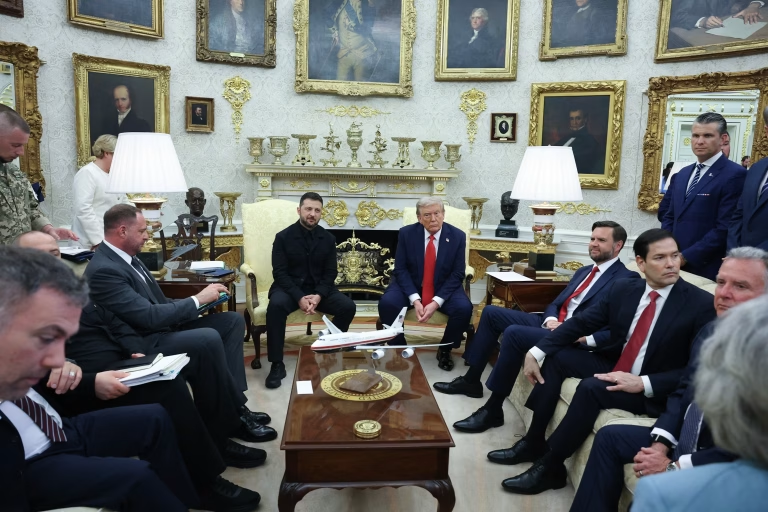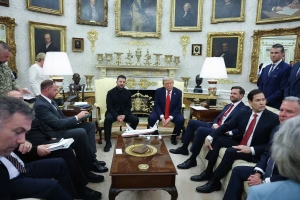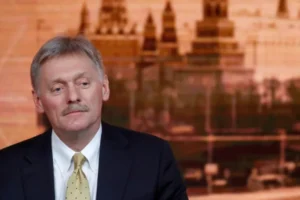South Africa Ramps Up Security Ahead of Historic G20 Summit as Protests, Racial Tensions, and Global Scrutiny Intensify in Johannesburg
As the first-ever G20 summit on African soil begin, South Africa is sending a clear message to the world: it is prepared to host with both open arms and unwavering resolve. In a dramatic display of readiness, police and military units paraded through Johannesburg this week—helicopters buzzing overhead, tactical K-9 teams on alert, and motorcycle squads weaving through choreographed drills. This orchestrated show of force isn’t just spectacle; it’s a strategic reassurance that the nation will safeguard one of the most consequential diplomatic gatherings in its history while upholding the democratic right to protest.
More than 3,500 additional officers have been deployed across the city, with the South African National Defence Force placed on high alert. All units now operate under the National Joint Operational and Intelligence Structure (NATJOINTS), a unified command framework that integrates police, military, and intelligence agencies—a move reflecting lessons learned from past global events marred by security lapses.
Deputy National Police Commissioner Lt. Gen. Tebello Mosikili emphasized a balanced approach: “We will allow this right to be exercised, but within the bounds of the law.” Her words underscore a delicate tightrope walk—honoring constitutional freedoms while preventing disruptions that could overshadow South Africa’s moment on the world stage.
To manage expected demonstrations, authorities have designated “special assembly zones” near the summit venue—the sprawling Sandton Convention Centre, adjacent to FNB Stadium, a symbol of national unity since the 2010 FIFA World Cup. Meanwhile, at OR Tambo and other international airports, “reception notes” have been quietly activated, ensuring that any protest activity during the arrival of world leaders is met not with confrontation, but with calibrated, “kind” intervention by security personnel trained in de-escalation.
The stakes are unusually high. Over 40 nations and major global institutions—including the United Nations, World Bank, International Monetary Fund, and World Trade Organization—will gather this Saturday and Sunday. Yet the summit’s promise of economic cooperation and multilateral dialogue is already intersecting with South Africa’s deep-seated social fractures.
Expected demonstrators span a wide ideological spectrum: anti-capitalist collectives condemning global financial systems, environmental activists demanding climate justice, feminist groups spotlighting the country’s epidemic of gender-based violence, and even anti-migrant organizations reflecting rising xenophobic tensions. Each group sees the G20 as a megaphone for their cause—especially given South Africa’s stark inequalities, where nearly 60% of youth remain unemployed and nearly one in four households lives without a single employed member.
Adding fuel to the diplomatic fire is a provocative billboard campaign by Solidarity, a union representing Afrikaners—the white minority descended from Dutch settlers. Their message, “Welcome to the most racially regulated country in the world,” targets South Africa’s Broad-Based Black Economic Empowerment (B-BBEE) laws, which aim to redress apartheid-era economic exclusion. Though one billboard was swiftly removed by Johannesburg city officials, Solidarity has threatened legal action, framing the takedown as censorship.
This domestic tension has spilled onto the international stage. U.S. President Donald Trump—has vocally boycotted the summit, echoing claims that South Africa’s government enforces “racist” policies against white citizens. The narrative has gained traction in certain Western media circles, threatening to undermine the summit’s legitimacy before it even begins. Most analysts and human rights organizations dismiss these allegations as misleading, noting that systemic economic inequality still overwhelmingly disadvantages Black South Africans.
Yet the controversy reveals a deeper truth: hosting the G20 is not just about logistics or diplomacy—it’s an act of national self-definition. South Africa is attempting to project itself as a stable, capable leader of the Global South while confronting unresolved wounds of race, class, and post-colonial identity.
For many citizens, the summit is a paradox: a symbol of global recognition juxtaposed against daily realities of load-shedding, crime, and unmet promises of liberation. Women’s rights groups, in particular, plan to use the global spotlight to demand action on femicide—a crisis so severe that a woman is murdered every three hours in South Africa.
As helicopters circle Sandton and protest permits pile up at city offices, one thing is clear: South Africa isn’t just preparing for a summit. It’s staging a national reckoning—one watched by the world, shaped by history, and charged with the hope that this G20 will not only include Africa but finally center it.












